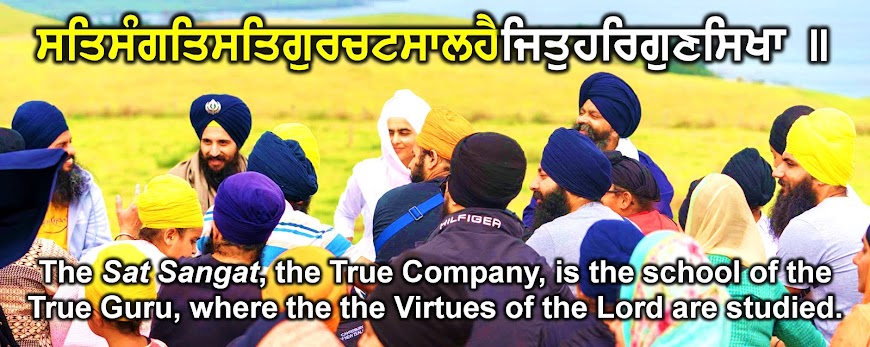How and Why Tat-Khalsa Will Be Victorious
Author: Bhai Balpreet Singh Ji (Toronto)
 |
| Bhai Balpreet Singh Ji |
Today we are seeing some very dark days for our Panth. Not because of our enemies attacking us or trying to destroy us, that has been happening since our creation, but because we ourselves are our own enemies.
People in Sikh appearance are amongst us eating at our roots. We ourselves allow ourselves to be fooled by them. Our "leadership" is filled with failed old men who talk big but have no Jeevan or character. These "leaders" will be remembered one day as those idiots who led the Panth to its biggest defeats in history.
All I see before me is the need to step away from this old and failed leadership. Its time to recognize that our institutions (SGPC, SANT SAMAJ, TAKHTS etc) have rotted away from the inside out because of these people who have sold their souls and compromised every Khalsa rehit.
But I am absolutely optimistic. Why? I see the youth. I see strong Khalsa youth coming up all over and I have a strong hope that these youth will never make any compromise in Khalsa principles and Rehit. They will stand for Dashmesh Pita jee and not sell out for personal gain or to appease anybody. This Tat-Khalsa (Pristine Khalsa) Guru Sahib is creating will drive out the Mallech-Khalsa (Wretched Khalsa) who are destroying us today!
The following is based on Pr. Satbir Singh's book "Rabab to(n) Nagara" on Why the Khalsa was victorious in the past, and why it will be in the future.
1) The Khalsa has full confidence and faith that they are the rightful and true rulers of this land (Punjab). Sri Guru Gobind Singh jee has promised us "Raj Karega Khalsa". This is his promise to us. When we become Khalsa and take those Rehits, we should have confidence that Dashmesh Pita is with us in all our fights.
Kalgidhar Pita Jee once said to his Khalsa, "Where the Singhs are fighting for Dharam for Parupkaar and Sikhi, you will forever see me fighting along side my Sikhs as well."
When Abdali asked Baba Ala Singh why the Sikhs never finish, Baba Ala Singh replied, "Sri Guru Gobind Singh jee has given the Khalsa this blessing that wherever one Sikh falls for the Dharam, two more will come to take his place".
2) The Sikhs know their land. Sikhs are sons of the soil. Punjab is ours. We know every village, every forest, every swamp and every hill. We are the rightful heirs of Punjab. This is the land of Sri Guru Nanak Sahib jee and no foreign power has any right to it.
3) Khalsa has high character and high jeevan. This has been the fault that has stopped us in the recent past. We have abandoned our rehit. When we are ready to sacrifice our lives but not our principles, victory is certain. Khalsa does not harm those who come to its shelter or surrender. Khalsa does not so much as touch another woman/man or her/his wealth. The Khalsa rules of battle were so high that if an enemy's turban fell off during battle, the Sikh would say, "Take care of your turban. I'm not here to interfere with your honour..."
This is a contrast to today where Sikhs (more accurately, Malechh Khalsa) when fighting other Sikhs first grab for the dastaar and have no shame in even pulling Kesh.
4) Khalsa would give up Moh (attachment) of all worldly possessions and their homes. They would make their saddles their homes. For the cause of the Panth it was a saying that the Khalsa never put his back down to rest but even slept while walking around. If they were wounded in battle, they would consider the blow to be a holy blessing.
The Khalsa would never retreat, only run back and then run forward again. Kazi Nur Muhammed writes, "If they ever run from battle, do not consider this to be a retreat. This is their strategy of war. Watch out! Save yourself from this trap of theirs. Once again, watch out!"
It is this tenacity and selflessness that will come to the Rehitvan Khalsa. It is this attitude that will result in Khalsa Raj! Gurmat Jeevan, Gursikhs and Rajneeti (Intelligent Politics) will get our Jeeth (Victory)!
ਵਾਹਿਗੁਰੂਜੀਕਾਖ਼ਾਲਸਾ॥ ਵਾਹਿਗੁਰੂਜੀਕੀਫ਼ਤਹਿ॥

























































